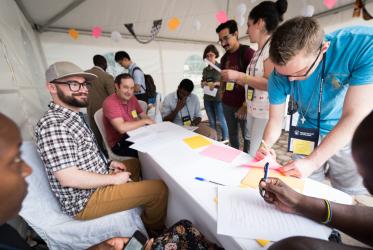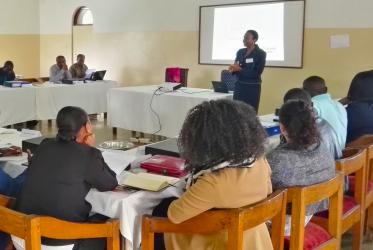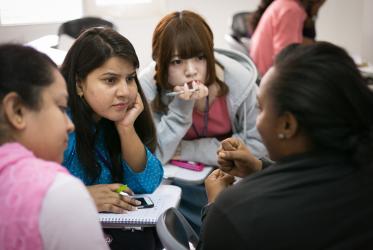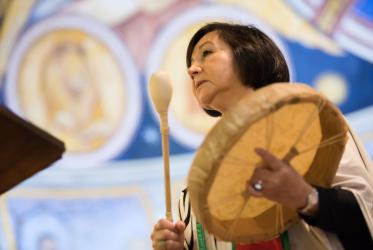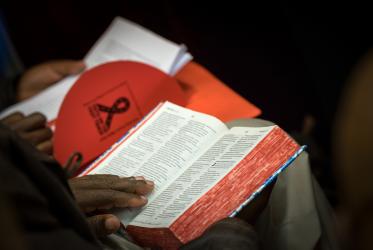Displaying 21 - 40 of 60
20 April 2018
Determined to make a difference
18 April 2018
Unifying faiths in peace and harmony through dialogue
10 April 2018
‘Sokoni’ transforms marketplace into mission
13 March 2018
Indigenous youth want their voices heard
08 March 2018
GETI students plant trees, in service for greener future
07 March 2018
GEM School: integrating theology and economics
05 September 2017
African youth takes stand at first ever WCC Eco-School
03 August 2017
Applications open for WCC Eco-School
10 May 2017
Advocates urge transition to low-carbon economy, clean energy
09 November 2016
Bible study gives hope as youth reflect on HIV
02 November 2016
Honest talk blossoms between youth, theologians in Cote d’Ivoire
14 September 2016
Young ecumenists address new realities of global movement
25 February 2016
